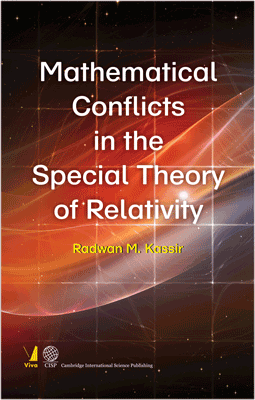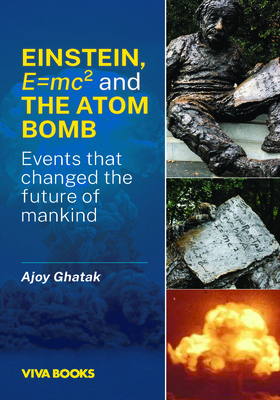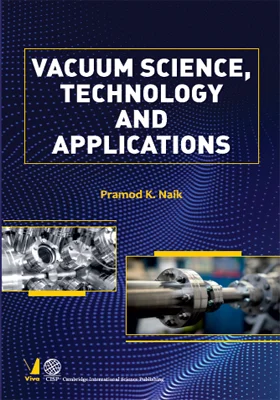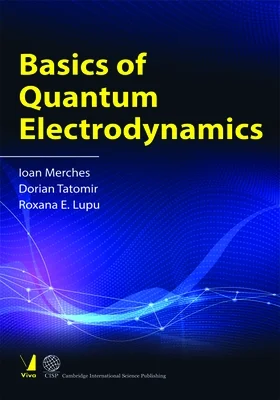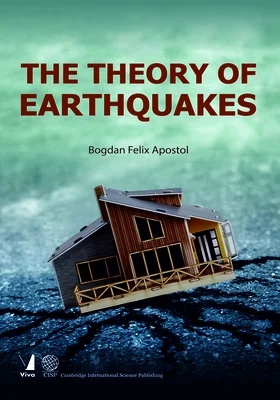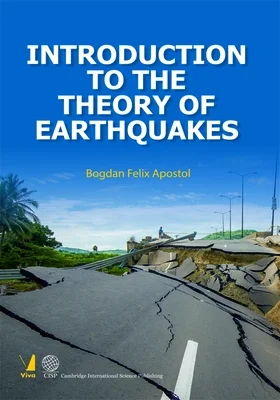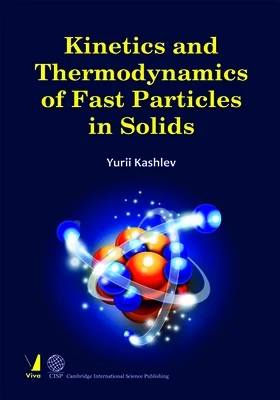Mathematical Conflicts in the Special Theory of Relativity
Mathematical Conflicts in the Special Theory of Relativity
₹895.50 ₹995.00 Save: ₹99.50 (10%)
Go to cartISBN: 9789385919237
Bind: Hardbound
Year: 2016
Pages: 244
Size: 152 x 228 mm
Publisher: Cambridge International Science Publishing
Published in India by: Viva Books
Exclusive Distributors: Viva Books
Sales Territory: India, Nepal, Pakistan, Bangladesh, Sri Lanka
Description:
Entries included:
- On the inference of Michelson-Morley experiment: Fitzgerald contraction implication on the time dimension
- Critical mathematical analyses of the Lorentz transformation
- The real consequence of the speed of light postulate
- Incompatibility of the light speed postulate with the coordinate transformation symmetry assumption
- Inconsistency of the special relativity with the principle of relativity
- Reconfirmation of the critical error in the formulation of the special relativity
- On the test of time dilation using the relativistic doppler shift equation
- Einstein's 1905 derivation of the equations of special relativity leads to its refutation
- A critical note on the relativistic doppler shift
- Special relativity refutation through the relativistic doppler effect formula
- The perceived image of time: Unraveling the special relativity misconceptions
- Another paradox of special relativity: Interlinked clocks
- How the special relativity violates fundamental physics concepts
- On the relativistic length contraction: A twisted conception
- Incoherence of the relativistic dynamics: E = mc2 contradicts special relativity!
Target Audience:
Students and academicians of Mathematics, Physics and Engineering.
Contents:
FOREWORD • PREFACE
INTRODUCTION
CHAPTER 1: ON THE INFERENCE OF MICHELSON-MORLEY EXPERIMENT: FITZGERALD CONTRACTION IMPLICATION ON THE TIME DIMENSION
Background • Lorentz Factor • Physical Perspective: Longitudinal Travel Time • Transverse Travel Time • Length Contraction Hypothesis • Special Relativity's Interpretation • Mathematical Perspective • Summary
CHAPTER 2: CRITICAL MATHEMATICAL ANALYSES OF THE LORENTZ TRANSFORMATION
Background • Lorentz Transformation • Lorentz Transformation Analysis: Constancy of the Speed of Light • Lorenz Transformation Re-derivation • Lorentz Transformation Contradictions • Conflict Rationalization • Apparent Space-time Transformation • Summary
CHAPTER 3: THE REAL CONSEQUENCE OF THE SPEED OF LIGHT POSTULATE
Background • Limitations of the Lorentz Transformation • Conflicting Finding • The Actual “Light Speed Postulate” Transformation • The Contradiction Root Cause • Summary
CHAPTER 4: INCOMPATIBILITY OF THE LIGHT SPEED POSTULATE WITH THE COORDINATE TRANSFORMATION SYMMETRY ASSUMPTION
Background • Fatal Consequence of the Light Speed Postulate and the Transformation Symmetry • Coordinate Transformation and Verification of Findings • The Special Relativity Blunder • Summary
CHAPTER 5: INCONSISTENCY OF THE SPECIAL RELATIVITY WITH THE PRINCIPLE OF RELATIVITY
Background • Thought Experiments: Pressure Vessel Discharge Time • Optical Lens Properties • Electrical Resistance • Thermal Conductivity • Summary
CHAPTER 6: RECONFIRMATION OF THE CRITICAL ERROR IN THE FORMULATION OF THE SPECIAL RELATIVITY
Background • Temporal Events Analysis: Arbitrary non-origin events • Co-local Events at K” origin • Simultaneous events • The Special Relativity Approach • Summary
CHAPTER 7: ON THE TEST OF TIME DILATION USING THE RELATIVISTIC DOPPLER SHIFT EQUATION
Background • Doppler Shift Approach to Test Time Dilation: Criticism • Time Interval Alteration: General Time Alteration Factor Derivation for Receding Frames • General Time Alteration Factor Derivation for Approaching Frames • Classical Approach: Case of Receding Reference Frames—Classical Approach • Case of Approaching Reference Frames—Classical Approach • Special Relativity Case: Case of Receding Reference Frames—Special Relativity • Case of Approaching Reference Frames—Special Relativity • Summary
CHAPTER 8: EINSTEIN”S 1905 DERIVATION OF THE EQUATIONS OF SPECIAL RELATIVITY LEADS TO ITS REFUTATION
Background • Contradictions in Einstein's 1905 Derivation: Derivation Outline • Critical Analysis • Summary
CHAPTER 9: A CRITICAL NOTE ON THE RELATIVISTIC DOPPLER SHIFT
Background • Relativistic Doppler Shift Contradiction • Summary
CHAPTER 10: SPECIAL RELATIVITY REFUTATION THROUGH THE RELATIVISTIC DOPPLER EFFECT FORMULA
Background • Relativistic Doppler Shift • Relativistic Doppler Shift Formula Contradiction • Light Speed Principle Contradiction • Summary
CHAPTER 11: THE PERCEIVED IMAGE OF TIME: UNRAVELING THE SPECIAL RELATIVITY MISCONCEPTIONS
Background • Time Interval Alteration • General Time Alteration Factor Derivation for Receding Frames: Perception in K (stationary “image frame”) of a proper time interval for events in K” (traveling “object frame”)—receding frames “direct” scenario • Perception in K” (stationary “image frame”) of a proper time interval for events in K (traveling “object frame”)—receding frames “opposite” scenario • General Time Alteration Factor Derivation for Approaching Frames: Perception in K (stationary “image frame”) of a proper time interval for events in K” (traveling “object frame”)—approaching frames “direct” scenario • Perception in K” (stationary “image frame”) of a proper time interval for events in K (traveling “object frame”)—approaching frames “opposite” scenario • Time Interval Alteration Applications • Emission Theory: Case of Receding Reference Frames—Emission Theory Approach • Case of Approaching Reference Frames—Emission Theory • Ether Theory: Case between the Ether and a Receding Frame • Case between the Ether and an Approaching Frame • Case between Two Reference Frames Receding From the Ether Frame K0 • Special Relativity Approach: Case of Receding Reference Frames—Special Relativity • Case of Approaching Reference Frames—Special Relativity • Summary • Table 11-1 Results Summary
CHAPTER 12: ANOTHER PARADOX OF SPECIAL RELATIVITY: INTERLINKED CLOCKS
Background • The Linked Clock Paradox • Summary
CHAPTER 13: HOW THE SPECIAL RELATIVITY VIOLATES FUNDAMENTAL PHYSICS CONCEPTS
Background • Deduction of the Classical Addition of Velocities from the Intrinsic Relation between Space, Time, and Velocity • Special Relativity Inconsistencies: Longitudinal Travel Time • Transverse Travel Time • Travel Time between the Frame Origins • Summary
CHAPTER 14: ON THE RELATIVISTIC LENGTH CONTRACTION: A TWISTED CONCEPTION
Background • Light Speed Principle, Time Dilation and Length Contraction • Length Contraction: a Twisted Concept • Misinterpretation of the Lorentz Transformation • Conclusion
CHAPTER 15: INCOHERENCE OF THE RELATIVISTIC DYNAMICS: E = MC2 CONTRADICTS SPECIAL RELATIVITY!
Background • The “moving” mass in the Special Relativity • Relativistic mass predicaments: Relativistic mass by conservation of momentum • Relativistic mass by conservation of energy • Kinetic energy equations under force = mass x acceleration: Using the longitudinal mass obtained from Lorentz transformation • Using the relativistic mass obtained from the conservation of momentum • Kinetic energy equations under force = momentum change rate: Using the relativistic mass obtained from the conservation of momentum • Using the longitudinal mass obtained from Lorentz transformation • Conclusion
GENERAL CONCLUSIONS
APPENDIX A: Derivation of the Lorentz Transformation
REFERENCES • INDEX
About the Author:
Radwan M. Kassir, MSc, C.Eng, LEED AP, PMP is a professional consultant engineer. He was educated at Northern Arizona University and Arizona State University where he received his Master of Science in Mechanical Engineering. Down his career, Radwan has taught college-level courses in physics, particularly kinematics, dynamics, and modern physics, as well as courses in fluid dynamics and heat transfer. He has several published papers on relativity in Physics Essays and the International Journal of Physics. He earned the credentials of the LEED AP BD+C from the U.S. Green Building Council, and the PMP from the Project Management Institute. Radwan is a member of the Chartered Institute of Building Services Engineers (CIBSE).
